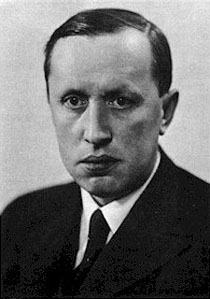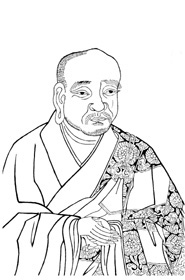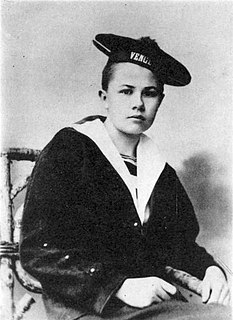A Quote by Sigmund Freud
A civilization which leaves so large a number of its participants unsatisfied and drives them into revolt neither has nor deserves the prospect of a lasting existence.
Related Quotes
The sole perfection which modern civilization attains is a mechanical one; machines are splendid and flawless, but the life which serves them or is served by them, is neither superb nor brilliant, nor more perfect nor more graceful; nor is the work of the machines perfect; only they, the machines, are like gods.
The essences of the Gods never came into existence (for that which always is never comes into existence; and that exists for ever which possesses primary force and by nature suffers nothing): neither do they consist of bodies; for even in bodies the powers are incorporeal. Neither are they contained by space; for that is a property of bodies. Neither are they separate from the first cause nor from one another, just as thoughts are not separate from mind nor acts of knowledge from the soul.
There are friends with whom we share neither interests nor any particular experiences, friends with whom we never correspond, whom we seldom meet and then only by chance, but whose existence nonetheless has for us a special if uncanny meaning. For me the Eiffel Tower is just such a friend, and not merely because it happens to be the symbol of a city, for Paris leaves me neither hot nor cold. I first became aware of this attachment of mine when reading in the paper about plans for its demolition, the mere thought of which filled me with alarm.
Where there is Love and Wisdom, there is neither Fear nor Ignorance.
Where there is Patience and Humility, there is neither Anger nor Annoyance.
Where there is Poverty and Joy, there is neither Cupidity nor Avarice.
Where there is Peace and Contemplation, there is neither Care nor Restlessness.
Where there is the Fear of God to guard the dwelling, there no enemy can enter.
Where there is Mercy and Prudence, there is neither Excess nor Harshness.
I should . . . prefer swallowing one incomprehensibility rather than two. It requires one effort only to admit the single incomprehensibility of matter endowed with thought, and two to believe, first that of an existence called spirit, of which we have neither evidence nor idea, and then secondly how that spirit, which has neither extension nor solidity, can put material organs into motion.
The establishment of inner harmony is to be attained neither in the past nor in the future, but where the past and future meet, which is the now. When you have attained that point, neither future nor past, neither birth nor death, neither time nor space exist. It is that NOW which is liberation, which is perfect harmony, to which the men of the past and the men of the future must come.
Every man feels that perception gives him an invincible belief of the existence of that which he perceives; and that this belief is not the effect of reasoning, but the immediate consequence of perception. When philosophers have wearied themselves and their readers with their speculations upon this subject, they can neither strengthen this belief, nor weaken it; nor can they shew how it is produced. It puts the philosopher and the peasant upon a level; and neither of them can give any other reason for believing his senses, than that he finds it impossible for him to do otherwise.
Civilization, that great fraud of our times, has promised man that by complicating his existence it would multiply his pleasures. ... Civilization has promised man freedom, at the cost of giving up everything dear to him, which it arrogantly treated as lies and fantasies. ... Hour by hour needs increase and are nearly always unsatisfied, peopling the earth with discontented rebels. The superfluous has become a necessity and luxuries indispensable.
The US no longer does decisions. It can neither stop the drug traffic nor legalize it. It can neither win wars nor abandon them, neither make money nor stop spending it, neither stop immigration nor assimilate the immigrants. Washington can beat its thumb with a hammer, yes, and notice that it hurts, but it can't stop beating its thumb. That would take a decision, and Washington doesn't do decisions.
I have neither the scholar's melancholy, which is emulation; nor the musician's, which is fantastical; nor the courtier's, which is proud; not the soldier's which is ambitious; nor the lawyer's, which is politic; nor the lady's, which is nice; nor the lover's, which is all these: but it is a melancholy of mine own, compounded of many simples, extracted from many objects, and indeed the sundry contemplation of my travels, which, by often rumination, wraps me in a most humorous sadness.





































